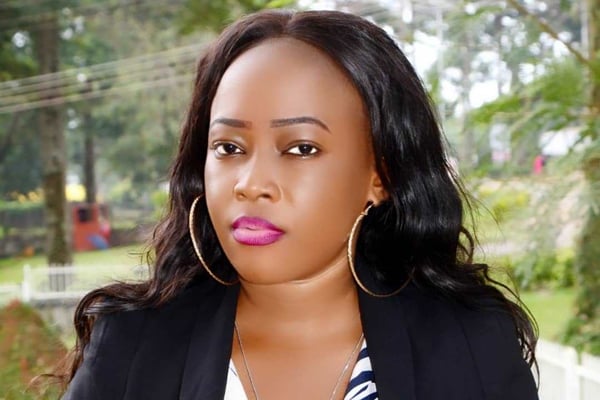Prime
Girls in fishing community benefit from menstrual hygiene education

Dr Charles Babutungi shows pupils at Nkumba Primary School what a disposable sanitary pad looks like. PHOTO | EVE MUGANGA
What you need to know:
- Ms Polyne Nabwire, FMP’s Programmes and Communication Coordinator, said they are responding to the challenges girls go through so as to improve their educational outcomes through training senior women teachers and student peer educators, to provide school girls with correct information on menstrual hygiene.
More than 5,800 school girls from fishing communities within Entebbe Municipality and Katabi Town council are to benefit from menstrual hygiene management education conducted by Family Medical Point (FMP).
Speaking at the commemoration of the Menstrual Hygiene Day at Nkumba Primary School on Friday, Dr Charles Babutunga from Mulago National Referral Hospital said that out of every “40 percent of Ugandan teens that drop out of school, one is because of menstrual hygiene, which has become a big problem in schools."
He noted that majority teenage girls do not know what to do or how to handle menstrual hygiene hence the rationale for sensitizing the public to extend the menstrual hygiene message into schools and teach girls how to go about it when they are menstruating.
"We have taught them how to use reusable pads and those which are disposable. Every 2-6 hours in a day, a pad should be changed depending on the flow of blood. Reusable pads should be washed and dried well before wearing them again. Schools should provide clean sources of water and soap so that the children wash their hands well, among others,” Dr Babutunga said.
"We have encouraged teens to share this information with their peers and also encouraged them not to exchange pads for sex," he added.
Ms Jane Adeke, of Family Medical Point said," Sensitising teens on menstrual hygiene is key because it can make one fail to go to school because of blood flow and they will not know how to control it."
She noted that during her demonstration, three types of pads were shown to school going children, including the disposable, re-usable and menstrual cup.
"It was their first time to see and hear about the menstrual cup. It is something new, which they still need awareness about so we are still continuing with the exercise, especially how to use a menstrual cup and its advantages," said Ms Adeke.
Ms Polyne Nabwire, FMP’s Programmes and Communication Coordinator, said they are responding to the challenges girls go through so as to improve their educational outcomes through training senior women teachers and student peer educators, to provide school girls with correct information on menstrual hygiene and introduction of menstrual cup as an alternative commodity which if cleaned properly can be used for up to five years.
“The overall goal of the project is to improve education outcomes of girls from poor families in fishing communities through enhanced knowledge on menstrual hygiene management,” she said.
The landing sites to benefit from the exercise include Nakiwogo, Kigungu, Kasenyi and Guda all in Entebbe, Wakiso District.
FMP is a non-governmental organization that advocates, promotes and provides comprehensive serial and reproductive health services to young people, women, marginalized, hard to reach and fishing communities. The organization is currently implementing a menstrual hygiene project in schools dubbed ‘Girls Empowering Girls’ in schools in the fishing community.



